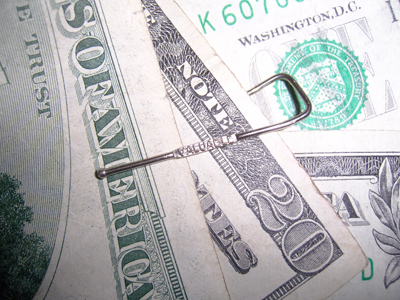All Nonfiction
- Bullying
- Books
- Academic
- Author Interviews
- Celebrity interviews
- College Articles
- College Essays
- Educator of the Year
- Heroes
- Interviews
- Memoir
- Personal Experience
- Sports
- Travel & Culture
All Opinions
- Bullying
- Current Events / Politics
- Discrimination
- Drugs / Alcohol / Smoking
- Entertainment / Celebrities
- Environment
- Love / Relationships
- Movies / Music / TV
- Pop Culture / Trends
- School / College
- Social Issues / Civics
- Spirituality / Religion
- Sports / Hobbies
All Hot Topics
- Bullying
- Community Service
- Environment
- Health
- Letters to the Editor
- Pride & Prejudice
- What Matters
- Back
Summer Guide
- Program Links
- Program Reviews
- Back
College Guide
- College Links
- College Reviews
- College Essays
- College Articles
- Back
Raising the Minimum Wage to $15 is long overdue
Today, the cost of living is significantly higher than it's ever been before with the price of healthcare, housing, and tuition being unbelievably costly. Yet somehow, the federal minimum wage has remained $7.25 since 2009, leaving millions of low-wage Americans working in back-breaking jobs that don’t pay enough.
It's time to raise the federal minimum wage to $15 because $7.25 just isn’t cutting it.
The pace of wage growth has slowed over the decades, meaning low-wage workers are not profiting off of economic growth and productivity like the rest of the economy. The minimum wage hasn’t kept up with inflation, average wages, and those holding the highest class income.
Consequently, the federal minimum wage in 2019 had 17% less purchasing power than it did in 2009, and 31% less than the minimum wage in 1968, according to an analysis done by the Economic Policy Institute.
Furthermore, a study done by the Center for Economic and Policy Research found that the minimum wage would now be $24 if it had kept up with productivity gains.
However, many like to point out that the author of that study, economist Dean Baker, disapproves of having the minimum wage keep up with productivity gains at the same rate as it did in 1968. Quite frankly, this is understandable, since every aspect of the economy has changed over the last 50 years.
This is why raising the minimum wage to $15 is more realistic because as Baker claims himself, “there is certainly room to raise the minimum wage, and many states have done so with no measurable impact on employment, there clearly is a limit to how far and how fast we can go.”
On the contrary, Republicans have been telling another story. They argue it will have a tremendous negative impact on employment, costing 1.4 million Americans their jobs over the next four years, according to the Congressional Budget Office.
But there are inconsistencies in that analysis, claims Arindrajit Dube, a research associate at the National Bureau of Economic Research. Using the CBO report’s evidence, he estimated that a $15 minimum wage would cause fewer than 500,000 lost jobs.
The truth is, it’s hard to accurately measure how much increasing the minimum wage will affect employment. Republicans fail to see that employment could be less responsive than CBO expects, and far fewer jobs could be lost.
Ironically, the same CBO report shows that if employment is less responsive than expected, increasing the minimum wage could actually boost employment. They found when low-wage workers have additional money to spend, more jobs open through higher demand for goods and services.
This also debunks the popular claim that small businesses will go bankrupt because higher demand produces more money. Higher demand also creates a greater need for more employees to be hired, which proves that raising the minimum wage could be a positive up-cycle.
So if raising the federal minimum wage to $15 could be beneficial, why are some still fighting against it?
The answer is simple, change doesn’t come easy. Although there is enough supporting evidence as to why we should increase the minimum wage, how the economy will respond is still unpredictable.
But we’ve been doing the same thing since 2009, and keeping the minimum wage at $7.25 clearly isn’t working. Too many low-wage workers are barely scraping by and we can’t just sit back and watch. Keeping the minimum wage the same would be inconsiderate and illogical.
After all, the definition of insanity is doing the same thing over and over and expecting a different result. It’s time for change.

Similar Articles
JOIN THE DISCUSSION
This article has 0 comments.

I wrote my editorial with the intent of sharing some facts about raising the minimum wage and where I stand regarding this topic. I hope whoever reads this article will learn about how raising the minimum wage will help low-wage workers and the economy.
Follow me on Quora for more writing content! https://www.quora.com/profile/Lauren-Sanday